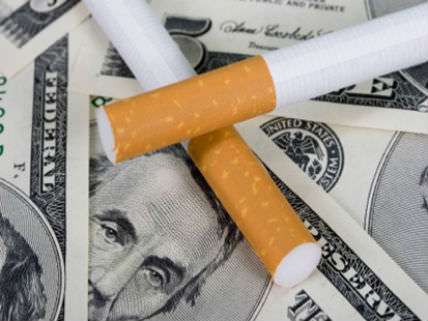Higher Cigarette Taxes = More People on Food Stamps?
A new study finds that poor smokers compensate for higher cigarette taxes by going on SNAP

Progressive environmental activists are fond of observing that "everything is connected to everything else." But when it comes to economics, progressives utterly ignore this lesson, e.g., hiking minimum wages. Two Cornell University economists have just published a working paper, Behavioral Responses to Taxation: Cigarette Taxes and Food Stamp Take-Up" that finds that many poor cigarette smokers compensate for cigarette tax hikes by applying for the Supplemental Nutrition Assistance Program. In other words, they often offset the higher costs for their cigarettes by resorting to government food subsidies. From the study:
We find that an average cigarette tax pass-through rate of 0.75 triggers an average increase in yearly household cigarette expenditures between $100 and $250. We also find that low-income smoking households are 50% more likely to enroll in food stamps relative to their non-smoking counterparts. Exploiting variation in state cigarette taxes across the US states over one decade, we then show that cigarette tax increases are significantly associated with higher food stamp enrollment. We find strong evidence that these effects are exclusively driven by smoking households: when taxes increase by $1, each additional carton of monthly cigarette consumption increases food stamp enrollment by 0.8 ppt [percentage point].
…we find that a $1 increase in cigarette taxes increases the monthly take-up probability for low-income smoking households by between 2 and 3ppt [percentage point] from a baseline probability of about 25%….
Over-all, the findings suggest that the recent expanded use of cigarette taxes to curb smoking has likely contributed to the recent increase in food stamp enrollment. Moreover, insomuch that the option to enroll in public assistance programs can decrease the effectiveness of cigarette taxes in nudging people to reduce smoking, our findings may also help explain the recent stagnation in cigarette consumption despite unprecedented rises in cigarette taxes.
As this study indicates, government nudges often have unintended consequences.


Show Comments (58)